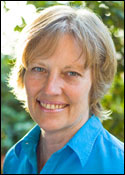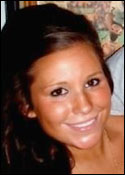Missouri School of Journalism to Recognize 167 Graduates at Upcoming Commencement Ceremony
Columbia, Mo. (Dec. 10, 2010) — The Missouri School of Journalism will recognize its 167 graduates during fall commencement ceremonies that will be held at 3:30 p.m., Friday, Dec. 17, in Jesse Auditorium. Family and friends of the graduates do not need tickets to attend. Seating will be open.

Graduate degrees will be awarded to 49 students, including three doctoral candidates and 46 master’s recipients.
Of the 118 undergraduate candidates, 58 studied strategic communication; 13, magazine journalism; 15, radio-television journalism; 12, print and digital news; 10, convergence journalism; and 10, photojournalism.
Overall, 34 of the graduating seniors will be recognized with Latin honors. These students have at least a 3.5 grade point average for their last 60 graded credit hours. The group includes seven Walter Williams Scholars, a group named after the founding dean.
The induction ceremony and reception for new members of Kappa Tau Alpha, the journalism honor society founded at the School of Journalism in 1910, will be from 1:30 to 2:30 pm, Friday, Dec. 17, in 100-A Reynolds Journalism Institute. Only students in the top 10 percent of the graduating class are invited to join the honor society, established to unite students of exceptional achievement from the nation’s leading schools of journalism and mass communication. This year’s inductees are:
MA Students
- Jacob Michael Berr
Photojournalism - Manu Bhandari
Convergence Journalism - Andrew Del-Colle
Magazine Journalism - Lawrence M. Lewis
Strategic Communication - Nancy Margaret McMullen
Magazine Journalism - Michelle M. Peltier
Photojournalism - Maria Platz
Strategic Communication - Lisen Tammeus
Strategic Communication
BJ Students
- Emily K. Coleman
Print and Digital News - Danielle Marie Karstens
Magazine Journalism - Shelby Marie Ott
Strategic Communication - Mattie Loretta Schuler
Magazine Journalism - Matt Velker
Convergence Journalism
The alumna speaker will be Lynn O’Shaughnessy, BJ ’78, an author, journalist, speaker, consultant and blogger. At the start of her career, she worked as a reporter for the Memphis (Tenn.) Press-Scimitar and later for the Kansas City Times, where she was nominated for a Pulitzer Prize for her exposé on the meatpacking industry. For more than six years, O’Shaughnessy was a political and government reporter for the Los Angeles Times.
After leaving the newspaper world in the 1990s, O’Shaughnessy became a financial journalist and freelanced for such media organizations as Business Week, The Wall Street Journal, USA Today, Consumer Reports, Kiplinger’s, MSN Money and The New York Times. She is the author of three financial books, including Retirement Bible and Investing Bible (John Wiley & Sons). O’Shaughnessy also ghostwrote a financial book that was a New York Times bestseller.
In the mid-2000s, O’Shaughnessy began exploring an area that the media rarely examine – finding and paying for colleges. She wrote The College Solution: A Guide for Everyone Looking for the Right School at the Right Price, an Amazon bestseller. She currently writes college blogs for CBS MoneyWatch and U.S. News & World Report, as well as her own site at The College Solution. O’Shaughnessy gives presentations throughout the country on how families with teenagers can afford college. She is also an independent college consultant, as well as the consulting director of college planning K-12 at the University of California, San Diego Extension.

The master of ceremonies will be Dieter Kurtenbach, a print and digital news major from River Forest, Ill. While a student, Kurtenbach covered the University of Missouri football team and the Big 12 Conference for the Columbia Missourian. He also held positions as a sports reporter and columnist at The Maneater as well as a play-by-play announcer and talk-show personality at KCOU radio.

The student graduation speaker will be Ami Albert, a strategic communication major and economics minor from St. Charles, Mo. Albert served as a media intern at the 2010 China Open in Beijing, and while interning at the McPheeters Group, she attended WordCamp Boston 2010 at the Microsoft New England Research and Development Center in Cambridge.
Albert was the 2009-2010 business manager of The Maneater, where she also served as promotions team member, advertising representative and sales manager. She was a member of the MU Honors College and Gamma Phi Beta sorority. Albert also received a Bright Flight scholarship and the MU Excellence Award for academic achievement.
Further information about the commencement ceremonies is available from the MU Commencement website.
Alumna Speaker
Lynn O’Shaughnessy, BJ ’78
Dec. 17, 2010
How many of you have ever been so scared that your knees buckled?
It happened to me once in the Missourian newsroom. I was a junior, and I was frustrated because I didn’t have a beat. I was assigned to a team that was supposed to produce stories for the newspaper, but we hadn’t generated a single byline.
I decided that the only way to land a beat was to talk to George Kennedy, the Missourian’s city editor, who scared the hell out of me.
Before spring break, I decided to make my case to Kennedy, and it was when I was approaching his desk in the middle of the newsroom that my knees started to give out. Kennedy listened to my pitch, but he didn’t promise anything. When I returned from spring break and looked at the beat assignments, Kennedy had assigned me to cover city hall. I was thrilled.
I’ve looked back fondly on this experience many times over the years but not for the reason you might expect. I’m not suggesting that had I never been assigned the city hall beat that my career path might have been different.
Why this incident matters is because it illustrates what I was willing to do to pursue my newfound passion for journalism. It’s this passion for journalism that’s helped me persevere in a writing career that’s lasted more than three decades.
I am sure that most of the graduates sitting here today share this same passion for journalism. And I want to congratulate you for choosing a career path less taken.
By far, the biggest percentage of college students today – 21 percent – are graduating with business degrees. These graduates want to make money, and there is absolutely nothing wrong with that. I’d suggest, however, that the key to succeeding financially and professionally in journalism, business or any other career is to choose something that you are good at and passionate about.
Unfortunately, I don’t think passion is given enough attention when students and parents talk about possible college majors and future career plans. I write a college blog for CBS MoneyWatch, and the two most popular posts that I’ve written in 2010 focused on the 20 best-paying college degrees and the 20 worst-paying college degrees. Since July when I wrote those posts, they’ve had close to a half-million hits. And this is no fluke. The most popular post that I wrote in 2009 was also on the same subject.
If you read my blog posts, you’d discover that journalism isn’t on the list of the best-paying or worst-paying degrees. Most of you probably assume that business has got to be near the top of the most lucrative degrees, but it isn’t. It’s 60th on the list. What’s more, the salary that the typical business major makes in mid-career is about what the typical journalist earns.
Research has shown that it’s not the specific college major that matters once you’re in the workforce but rather the passion and talent you possess for what you end up doing.
It’s so much easier today for young journalists to pursue their passions than when I was in journalism school. And yet if you listen to my peers – journalists who are old enough to be your parents – you won’t hear that story. Many of these journalists are depressed right now because the media worlds they knew are crumbling.
Journalism certainly is different. I was a young reporter at the Los Angeles Times during a period when journalists there routinely referred to the newspaper as a velvet coffin because it was such a cushy place to work. When reporters at the LA Times, for example, had to fly more than 500 miles, we were booked in first class. Imagine that. No one would ever call newspaper jobs cushy today.
Despite the gloom, I think this is a grand time to be getting started in journalism because the Internet has made the field far more egalitarian today. You can become an expert on anything. You can share your opinions and what you know across the globe thanks to blogs, YouTube, Facebook and a ton of other platforms.
Young journalists also don’t have to deal with the ridiculously small number of gatekeepers that the profession used to have. When I was a newspaper reporter eager to break into better markets, there were typically just two newspapers in every major town. Of course, now there are less. If the editor reviewing resumes wasn’t interested, you were out of luck. As a newspaper reporter, I lived in Memphis, Tenn.; Kansas City, Mo.; and Los Angeles, and I can tell you that I never would have chosen to live in any of those cities, but as a newspaper reporter I felt compelled to follow the opportunities.
Thanks to the Internet, the number of professional connections you can make are limitless and so are the opportunities. Here are just three of my favorite examples:
Joshua Fisher, a Dodger fan and law student at the University of Minnesota, has always been intrigued by the financial side of baseball. When the couple that owns the Los Angeles Dodgers became embattled in a nasty divorce fight, the student began covering the trial. Fisher created a blog called DodgerDivorce.com that went viral, and he has become a go-to-expert on the topic. ESPN has interviewed him, and he’s a frequent guest of L.A. sports-talk radio. He has baseball executives following his commentaries.
As Fisher noted in a New York Times article, “Employers like people with a story, and I have a better story now than I did a year ago, and I see the difference.”
Here’s another example: Lauren Luke was a British taxi dispatcher when she decided to sell makeup on eBay. The young woman was passionate about makeup, and she videotaped her beauty tips at her computer. Unlike all the graduates sitting here in Jesse Hall, she didn’t know how to edit her videos, so she uploaded them to YouTube, mistakes and all.
Lauren became a monster hit on YouTube, which led to a consulting job with a major British cosmetic firm, a beauty columnist gig at the highly respected Guardian newspaper, a book contract and her own makeup line.
Here’s one more example: Zac Bissonnette, whom I happen to know, is an art history major at the University of Massachusetts in Amherst. He writes a financial blog for AOL, he’s a contributor to the Daily Beast, and he’s a bestselling author. The name of his Amazon bestseller is “Debt-Free U: How I Paid For An Outstanding College Education Without Loans, Scholarships, or Mooching Off My Parents.”
How did he manage to do all this? Zac is a talented and passionate young man and a wonderful writer. And he’s also savvy. He decided that it would be easier to succeed if he had mentors. He set about cultivating powerful people in the financial journalism world with a simple tool: e-mail. He started e-mailing some industry leaders with the hopes of networking. That’s how he ended up knowing Andrew Tobias, a bestselling financial writer, Suze Orman and others. Zac’s electronic networking has paid off, and he isn’t even out of college yet.
What I’m trying to illustrate in sharing these examples of young people making their mark is this: Journalism is alive and kicking; it just looks different. Please don’t let all the Debbie Downers who are whining about the state of journalism today get you depressed. This is a fabulous time for 20-somethings to be in this profession.
Finally, since I’m a journalist who covers the college world, I’d be remiss if I didn’t give graduates who are leaving with student debt some practical advice. If you possess student loans remember these three letters: I.B.R. That stands for Income-Based-Repayment program. If you are unemployed or underemployed and you have federal student loans, you can repay the loans based on what you can afford not on what you owe. Google “IBR” to learn more, and also check out ProjectonStudentDebt.org.
In conclusion, I want to thank Dean Mills and the School of Journalism for inviting me to be the commencement speaker today. I also want to thank the Class of 2010 for letting me share in your special day of celebration and accomplishment. It’s very tempting to say that I wish I could trade places.
Congratulations to each of you. I wish you all the best in your careers and your lives!
Student Speaker
Ami Albert, BJ ’10
Dec. 17, 2010
On Oct. 11, 2010, I found myself halfway around the world, standing at the feet of an ancient statue at the entrance to China’s Imperial Summer Palace. I was staring at a face that I had seen many times before. It was the face of a lion, identical to the two stone lions that guard the journalism walkway near Neff Hall, more than 14,000 miles away in Columbia, Mo.
Like many students who have walked through the journalism archway on the way to class, I have mindlessly passed by those statues countless times over the past four years. However, in that moment I realized the significance of those statues, gifted to the Journalism School by the Chinese Government in 1931. I felt a new sense of appreciation for my education at the University of Missouri, which allowed me to travel to Beijing through an internship program made possible by international relationships established almost a hundred years ago.
There is a saying among sociologists that “culture is communication, and communication is culture.” Walter Williams founded the Missouri School of Journalism in 1908 with an understanding of the important role of high quality journalism in American culture.
His goal was to devote an entire school, with a university standard of excellence, to implementing accurate, fair and responsible journalistic practices. Walter Williams wrote the Journalist’s Creed, which has been published in more than 100 languages, expressing his mission to create and promote a “journalism of humanity.” At the Missouri School of Journalism, our value system is based on a duty to spread accurate, fair and truthful information to the public, which is at the heart of freedom and democracy.
Changes in technology and demographics have challenged the structure of traditional journalism, with audiences now more likely to click on a link than to pick up a newspaper, or to tweet their opinion instead of writing a formal letter to the editor. Despite the changes that have taken place in our country, and our world, the Journalist’s Creed has remained a strong, constant pillar of values promoting a free and informed society. A Chinese scroll presented to the Journalism School in 1928 declares that our institution is “building a standard for the expression of public opinion in all countries.”
For me, seeing the 500-year-old matching lion statue in Beijing and forming relationships in a foreign culture represented the essence of communication, humanity and freedom that stands at the core of what it means to be an American journalist and a global citizen.
The author Ayn Rand once wrote, “A culture is made – or destroyed – by its articulate voices.” At the Missouri School of Journalism, we have been given the vehicle of communication. It is our individual decisions to use this powerful tool of journalism that will determine the future of our country and our culture.
Updated: May 19, 2020